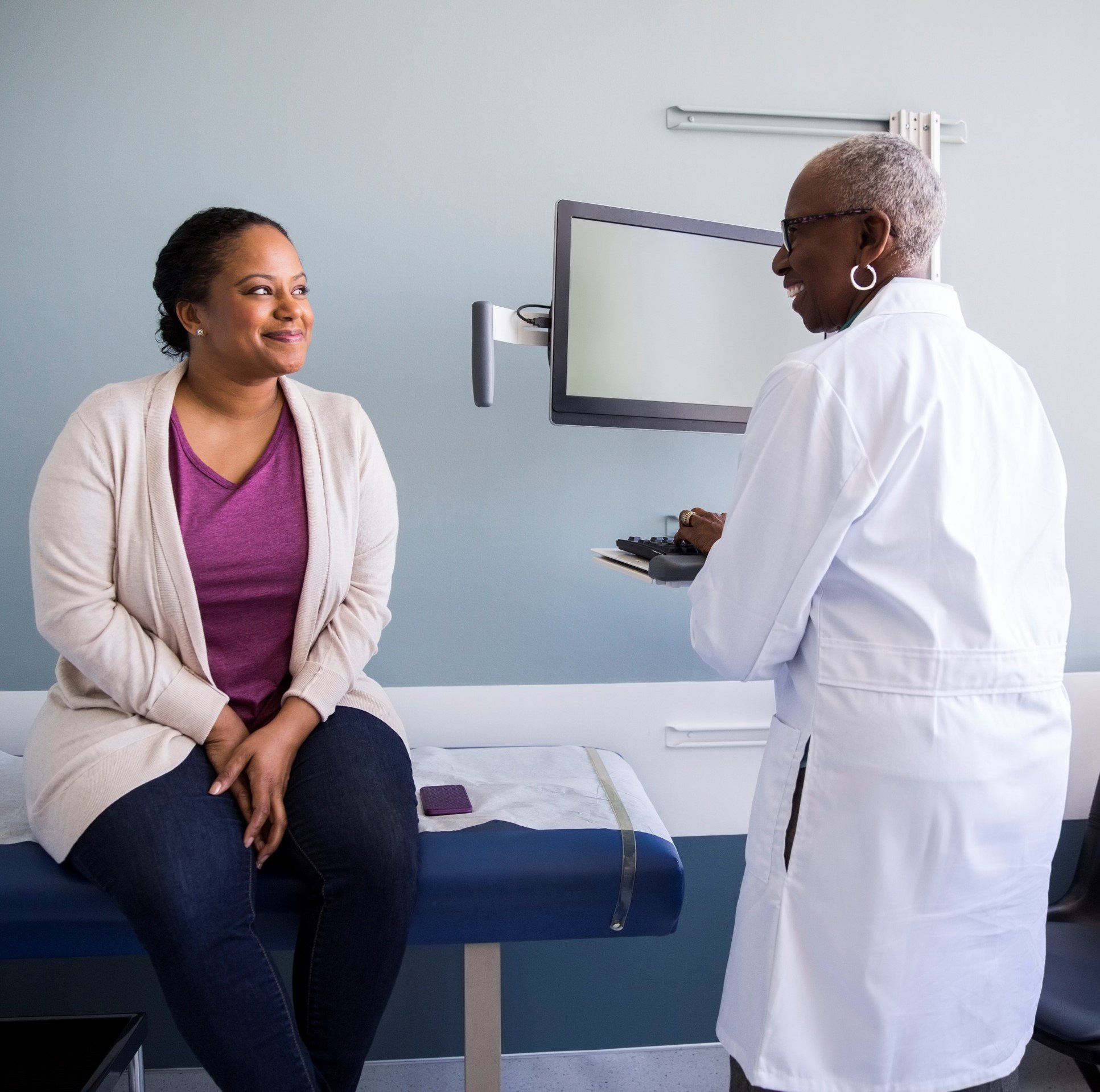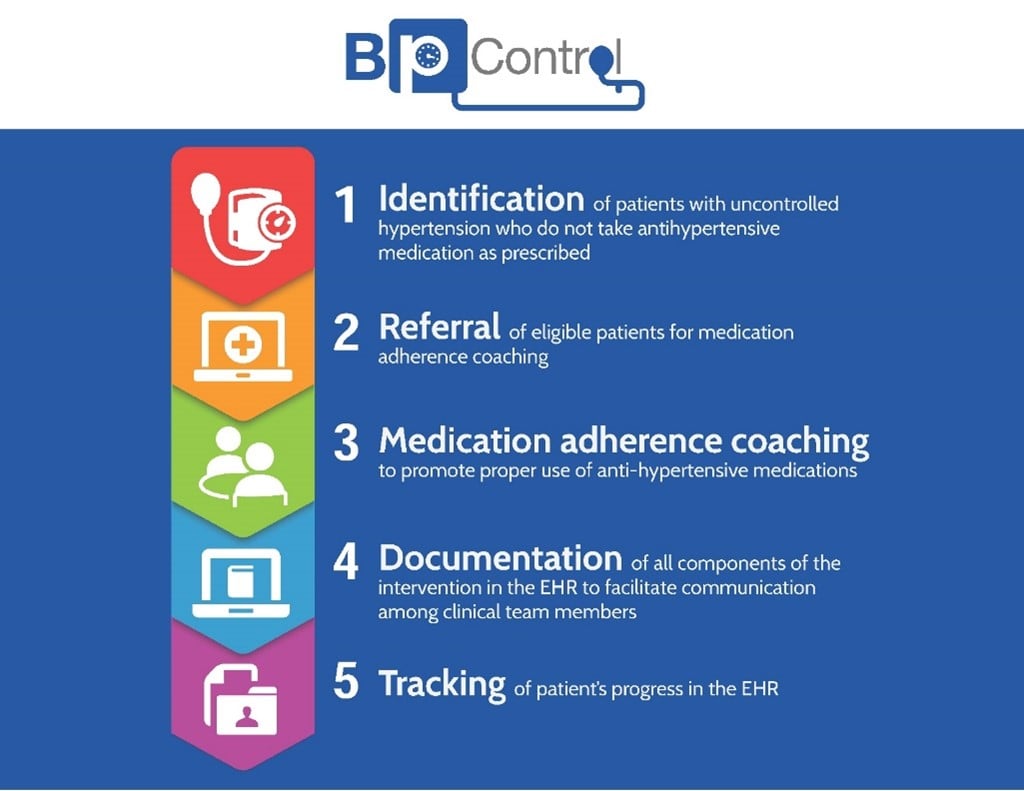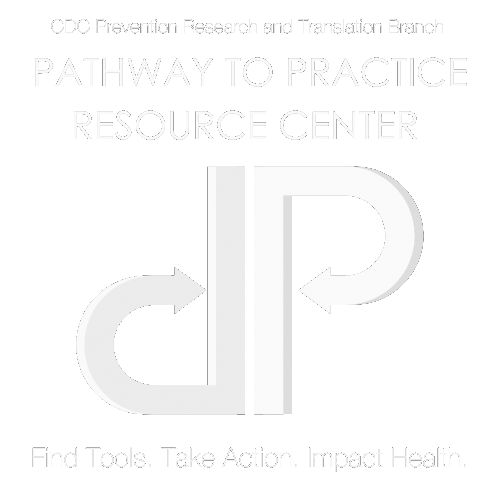BP Control
The US Surgeon General Call for Action1 to make controlling hypertension a national priority in the United States. High blood pressure, or hypertension, can lead to heart disease, stroke, cardiovascular disease, dementia, and other serious health conditions when it is uncontrolled. These risks associated with hypertension can be reduced with appropriate prescription medication, but patients must be adherent to these prescriptions. Although this is important, it can be complicated to do. In fact, it is estimated that as many of 84%2 of patients with uncontrolled hypertension do not take their antihypertensive medication or do not take it as prescribed.
 About BP Control
About BP Control
BP Control is the Core Research Project of the PRC at UMass Chan (2019-2024). The project is led by Milagros C. Rosal, PhD in partnership with Edward M. Kennedy Community Health Center and Family Health Center of Worcester, which are two local community health centers with a focus on improving hypertension control among patients. It will study the costs, return on investment, and blood pressure control groups among groups of people with higher rates of uncontrolled blood pressure.
BP Control is an evidence-based, systems-level, quality improvement program that is comprised of five components.

The BP Control Coach, who is a specifically-trained Community Health Worker, coas they are prescribed and communicates with the rest of the clinical team.
Accordingly, the BP Control program:
1. Identifies patients with uncontrolled hypertension who are not taking their anti-hypertensive medications, or who are not taking them as prescribed.
2. Refers the identified patients to a medication adherence coach.
3. Delivers a coaching intervention. The BP Control Coach is a Community Health Worker (CHW) who has been rigorously trained in a behavioral counseling protocol to enhance patient adherence to medications.
4. Documents all components of the program in the EHR. This allows communication among all members of the clinical team, including the medication adherence coach. In addition, it allows the health center staff to track the fidelity of the program delivery, and thus guide quality improvement, as needed.
5. Tracks all components of the intervention on the EHR. This allows monitoring of patient progress through the program.
The BP Control Coach, who is a specifically-trained Community Health Worker, coaches patients to take these anti-hypertensive medications as they are prescribed and communicates with the rest of the clinical team. As a quality-improvement program, all components of the program are documented in the EHR. Reports track fidelity for the program components and are used to monitor care for patients with uncontrolled hypertension and to guide quality improvement, as needed.
Importantly, many patients are able to control their hypertension with the assistance of the BP Control CHW Coach and clinical team!
Read the BP Control Manual of Operations that is written for community health center leadership, clinical staff, and quality improvement teams as they consider implementing the BP Control program, or are taking steps to implement it.
1 U.S. Department of Health and Human Services. The Surgeon General’s Call to Action to Control Hypertension. Washington, DC: U.S. Department of Health and Human Services, Office of the Surgeon General; 2020.
2Choudhry NK, Kronish IM, Vongpatanasin W, Ferdinand KC, Pavlik VN, Egan BM, Schoenthaler A, Houston Miller N, Hyman DJ; American Heart Association Council on Hypertension; Council on Cardiovascular and Stroke Nursing; and Council on Clinical Cardiology. Medication Adherence and Blood Pressure Control: A Scientific Statement From the American Heart Association. Hypertension. 2022 Jan;79(1):e1-e14. doi: 10.1161/HYP.0000000000000203. Epub 2021 Oct 7. PMID: 34615363.



